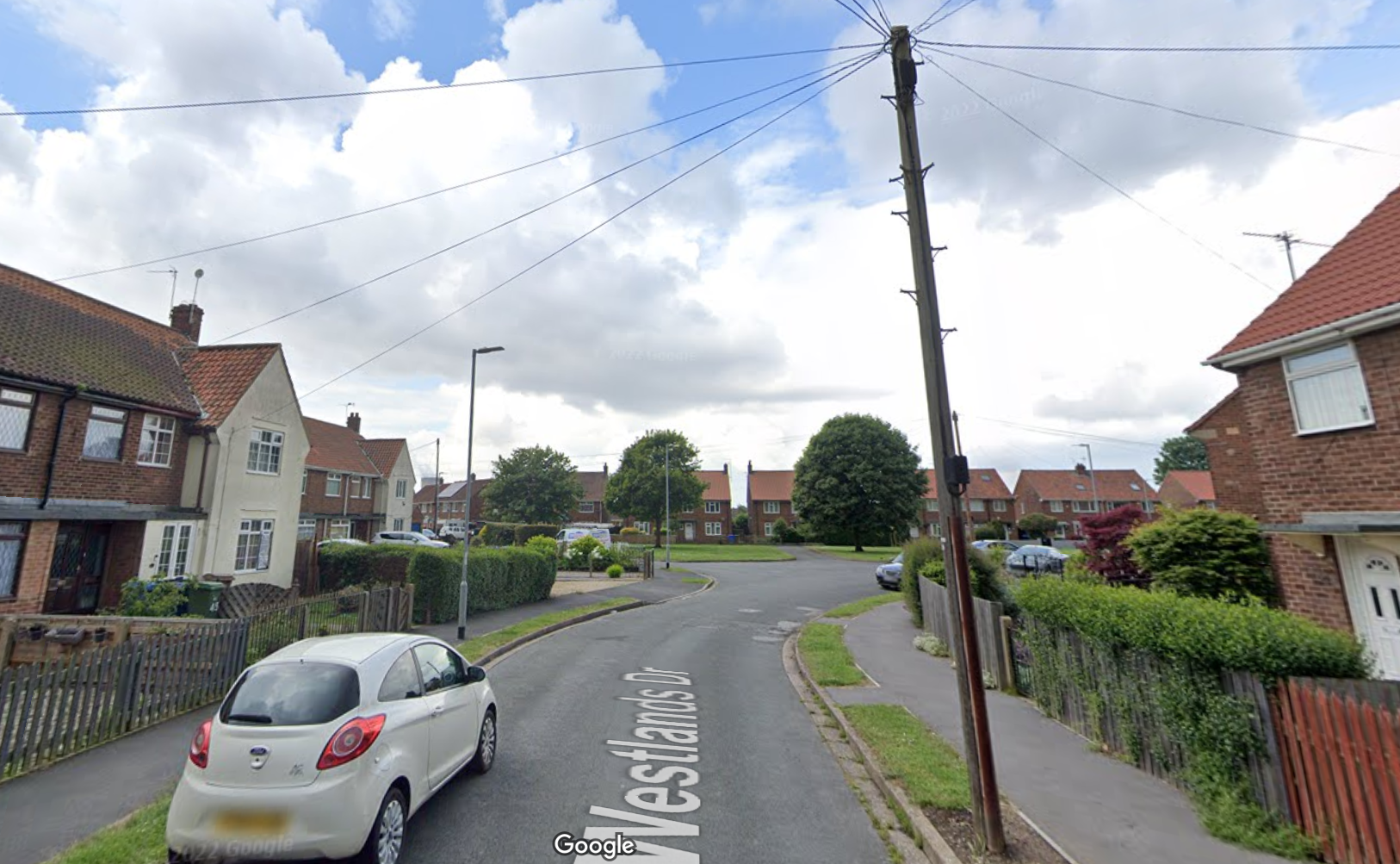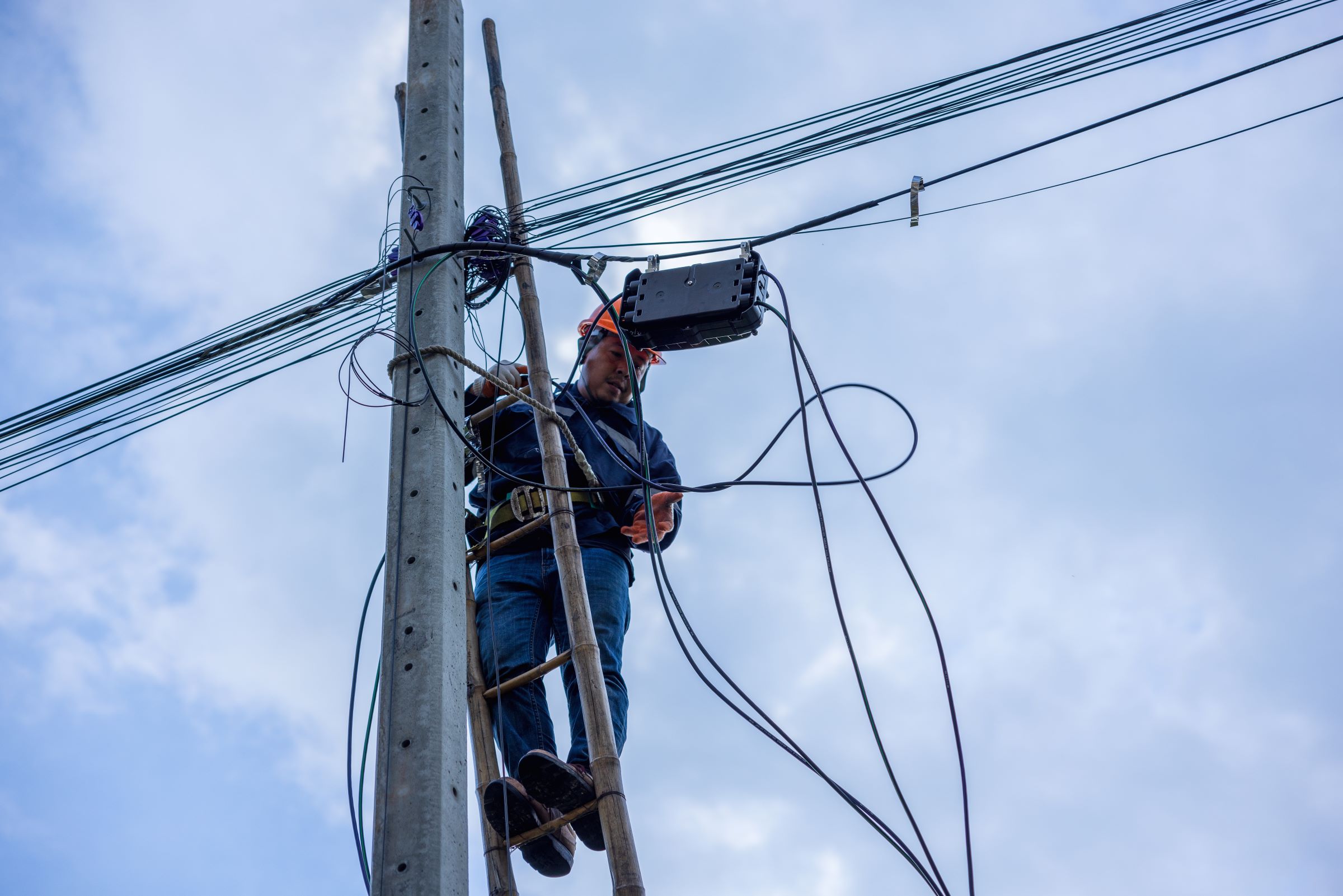Homeowners blockade roads to stop 500 broadband poles being installed
Householders blockaded their streets to stop the installation of the 30ft high poles, which were described as 'eyesores' and are encouraging other homeowners to do the same

One Yorkshire town has blockaded roads to stop telecom workers installing 500 broadband poles in their area due to them being 'eyesores'.
The UK government has committed to rolling out fibre broadband coverage across all of the UK by 2033 and in April 2022 the law changed so that operators can erect telegraph poles without having to apply to councils for planning permission.
The protestors in Hedon, East Yorkshire, however, vowed to boycott any internet provider who decides to use the 30ft high wooden poles and demand that the cables run underground instead.
How did the locals block the roads?
On October 9 a group of protestors parked their cars on a road where work was set to begin to prevent a lorry and trucks from broadband provider MS3 being able to park up themselves.
The workmen dug two holes but then had to abandon work. A protestor then parked her car over the hole. Police were called but no action was taken.
A campaign group calling itself 'Hedon Says No' has been set up to discuss the latest developments and tactics to prevent the work from taking place.
The homeowners have called the poles ‘eyesores’ and say there is nothing wrong with the existing internet provision. They also felt the poles were forced on them without consultation.
Get the Homebuilding & Renovating Newsletter
Bring your dream home to life with expert advice, how to guides and design inspiration. Sign up for our newsletter and get two free tickets to a Homebuilding & Renovating Show near you.
‘We don't want these eyesores on our streets’
One resident, Julie Dervey, told the BBC she was worried Hedon would look like “1940s Manhattan… with a spider's web of wires strung between awful telegraph poles".
She added: “About six weeks ago we woke up to find notices from the council telling us we were going to have this happening here.
“There is already infrastructure underground for broadband. We don't want these eyesores on our streets.”

Guy Miller, CEO of MS3 Networks, said the work would continue and planning permission is not required, adding that the work will reduce broadband costs for residents.
“We understand some residents are upset by this work,” he added. “It's not our intention to cause disturbance, and we want to work with residents in the most effective way possible.
“We'd like to remind residents that it is against the 1984 Telecommunications Act to obstruct telecoms workers when they're carrying out work.
“That is for their safety and for that of the public and, while we encourage an open dialogue to help residents understand the work we're doing, that must be done safely.”
What are the planning laws for broadband poles?
A 2013 amendment to the Electronic Communications Code 2003 allows companies to install overhead cables without planning permission, but not in conservation areas.
The work is considered a permitted development if “the work is by or on behalf of an electronic communications code operator for the purpose of the operator’s electronic communications network in, on, over or under land controlled by that operator or in accordance with the electronic communications code, consisting of the installation, alteration or replacement of any electronic communications apparatus.”
‘We want to change the rules of permitted developments’
The protestors are also encouraging others to stop broadband companies from installing these poles on their streets as well.
Retired nurse Joyce Whittle, 62, told MailOnline: “We need to raise awareness to everybody in the country that this can take place on their streets.
“We want to change the rules of permitted developments, which the Government brought in last year to allow these telecom companies to come into an area and tell people they are going to put up poles and then, 28 days later, turn up, dig holes where they want to and erect them.
“There has been no consultation and we did not get a chance to object to the council.”
Sam is based in Coventry and has been a news reporter for nearly 20 years. His work has featured in the Mirror, The Sun, MailOnline, the Independent, and news outlets throughout the world. As a copywriter, he has written for clients as diverse as Saint-Gobain, Michelin, Halfords Autocentre, Great British Heating, and Irwin Industrial Tools. During the pandemic, he converted a van into a mini-camper and is currently planning to convert his shed into an office and Star Wars shrine.

